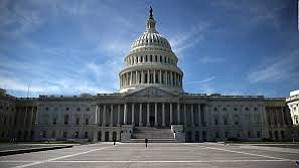Senators: NAFTA was written in the age of floppy disks; it's time for an update
CNN/Stylemagazine.com Newswire | 4/12/2018, 12:19 p.m.
By Ted Cruz, Cory Gardner and Steve Daines
(CNN) -- When did the United States of America start thinking small on trade?
Our nation was discovered, explored and built by bold thinkers and pioneers in search of new frontiers and prosperity. They forged into the unknown and risked life and limb to carve new trade routes and paths to economic greatness. This indomitable desire to expand trade between the new and old worlds led to the first maps of the American frontier and ultimately defined the borders of the United States.
Today, as we struggle to navigate the future of American trade policy, we cannot allow ourselves to abandon our pioneering spirit. Yet, sadly, the United States has not been able to finalize and implement a major regional trade agreement in nearly a decade. The NAFTA renegotiation has not yet succeeded, and we currently sit on the sidelines as the European Union and China strike deal after deal that disadvantage US businesses and jobs.
International trade is critical to our nation's economy and to the United States' competitiveness in an increasingly global marketplace. Since 1994, NAFTA has been an integral component to our trade footprint and significantly boosted our economy by removing barriers to trade with our neighbors in Canada and Mexico. According to the US Chamber of Commerce, trade among our nations has nearly quadrupled to $1.3 trillion, US services exports to these countries have more than tripled from $27 billion in 1993 to $92 billion in 2014, and these trading partners buy more than one-third of US merchandise exports.
But NAFTA was drafted during the era of floppy disks and fax machines. The internet was barely a blip on the radar. Today it is critical to every industry and profession, empowering immediate global communication and creating opportunities that didn't exist back in 1994. While the basis of NAFTA continues to provide chances for the workers of this country, it needs to be overhauled to reflect our modernized economy.
It should also go beyond the standard approach to trade agreements employed by previous administrations, which focused on the realm of tariffs, rules of origin, trade remedies, and dispute settlements. It is an approach that has fallen short, and will continue to because it fails to comprehensively resolve the structural issues that make America less competitive and inadequately addresses the public's legitimate concerns about globalization and its effects on jobs and wages.
We need a new consensus on trade that incorporates both new rules that will enhance US competitiveness abroad and structural reforms that focus on strengthening US competitiveness from within.
In a letter we wrote to President Donald Trump recently, we outlined the priorities that are integral to a successful renegotiation of NAFTA -- putting the interests of our country first and making it easier for companies to grow and invest in the United States.
We proposed a groundbreaking "Competitiveness" chapter in NAFTA, consistent with the Trump administration's priorities, and which directly addresses the key factors companies consider when they make decisions about locating and expanding their operations:
First, streamlining permit processes to help expedite projects and unleash exports of manufactured goods, agricultural products and natural resources, such as natural gas and coal.
Second, enacting rational reforms like the REINS Act -- which requires Congressional approval of any new regulation that costs more than $100 million -- will create a predictable and transparent regulatory environment that eliminates red tape, promotes and rewards freedom and innovation and enhances the competitiveness of our factories, farmers and rural America.
And, third, modern infrastructure, both physical and digital, enables the swift movement of cargo from the heartland to and through our borders and ports, using the latest advances in logistics and technology.
Modernizing NAFTA in this fashion would draw companies to our shores in droves; make US manufacturers, producers, service providers, farmers and workers more competitive; and create good, high-paying American jobs. Making game-changing reforms in these areas would also put the United States in a much stronger position to forcefully confront China, which is pursuing its own domestic strategies that are often harmful to US interests.
This new NAFTA strategy is consistent with the mandate of the Trade Promotion Authority Act that US trade agreements "foster economic growth, raise living standards, enhance the competitiveness of the United States, promote more, better-paying jobs in the United States, and enhance the global economy." We believe that it would be supported by Canada and Mexico, and help us bring the negotiations to a rapid conclusion.
Most importantly, this is an approach that would enable Congress to pass, and President Trump to ratify, an improved version of NAFTA before November of this year. Because it would be passed under the Trade Promotion Authority, it requires only a simple majority in the Senate, which means the minority would not have the votes to block it.
While some of our approaches to trade may differ from the President's, no proposal this year has as much promise to further his economic development plan and yield near-term economic growth, while continuing to reap benefits for hard-working Americans in terms of upward mobility, wage growth and job opportunities for years to come.




